The Twelve Olympians, also known as the Dodekatheon, were the principal deities of the Greek pantheon, residing atop a mythical version of Mount Olympus. The Olympians gained their supremacy in a war between gods in which Zeus led his siblings to victory over the Titans. Despite being considered nothing but mythical figures today, in ancient Greece (and later Rome) their role and significance could be found in all aspects of everyday life. Their legacy and influence can even be found in the names of the planets in our solar system (in their Roman forms) and the Olympic Games, which started as an athletic event in honor of Zeus. Needless to say, the Greek gods have had a huge impact on many aspects of current and historical life. Dive in a little deeper into the mythos of the Greek gods with These 25 Fascinating Things You Probably Didn’t Know About Greek Gods.

Athena served as a guardian of Athens, where the famous Parthenon served as her temple. The Greek capital is named after her.
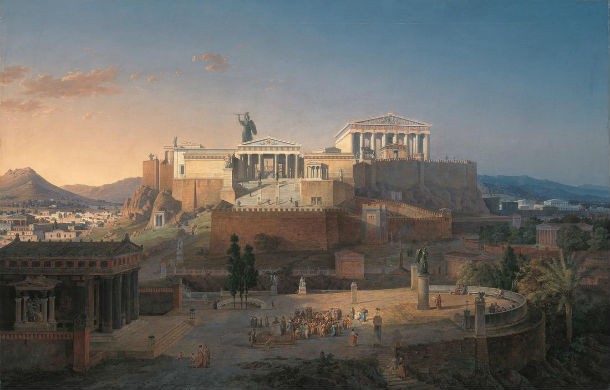 Source: greekgodsandgoddesses.net, Image: en.wikipedia.org
Source: greekgodsandgoddesses.net, Image: en.wikipedia.org Despite Demeter being the goddess of the harvest and the fertility of the earth she only had one daughter, Persephone. After Hades abducted Persephone, Demeter grieved and subjected the world to famine. Zeus finally intervened so Demeter and Persephone could be reunited. Demeter was granted four months each year with her daughter, who would remain with Hades for the other eight.
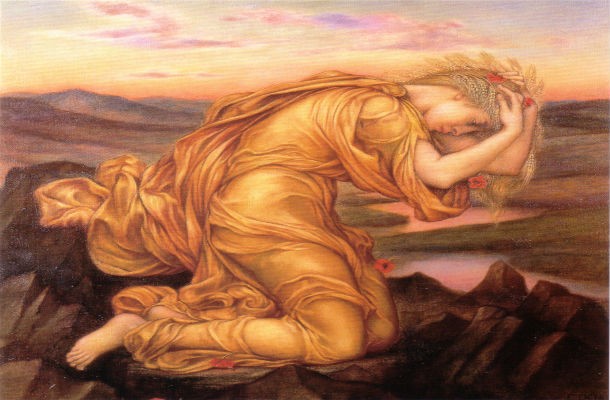 Source: greekgodsandgoddesses.net, Image: bar.wikipedia.org
Source: greekgodsandgoddesses.net, Image: bar.wikipedia.org According to some versions of Greek mythology Hephaestus, aka the god of fire, was the son of Hera alone, who conceived him in order to get back at Zeus for bringing forth Athena from his head. As a result of Hera’s desperate attempt to get back at Zeus, Hephaestus was born deformed and was the only ugly god among the Olympians.
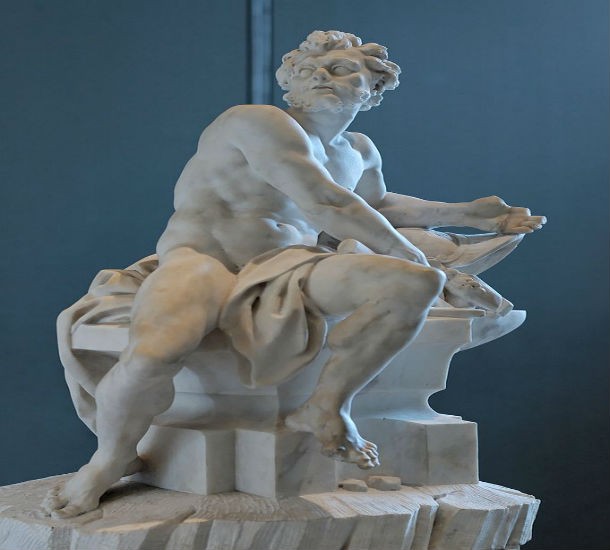 Source: greekgodsandgoddesses.net, Image: commons.wikimedia.org
Source: greekgodsandgoddesses.net, Image: commons.wikimedia.org As if Hephaestus wasn’t unfortunate enough already, his wife Aphrodite was unfaithful to him and had an affair with Ares. She even gave birth to two children by Ares: Eros (Cupid), and Harmonia (Harmony).
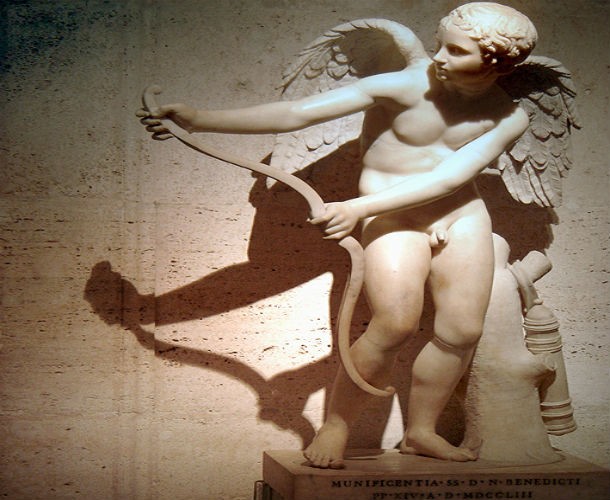 Source: greekgodsandgoddesses.net, Image: commons.wikimedia.org
Source: greekgodsandgoddesses.net, Image: commons.wikimedia.org Prostitutes considered Aphrodite their patron. This happened mainly because prostitutes in ancient Greece had to be extraordinarily beautiful and desirable and so they believed the goddess of beauty was their protector. For this reason Corinth was the center of Aphrodite’s worship since it was the city with the most beautiful and desired prostitutes of antiquity known as Laides.
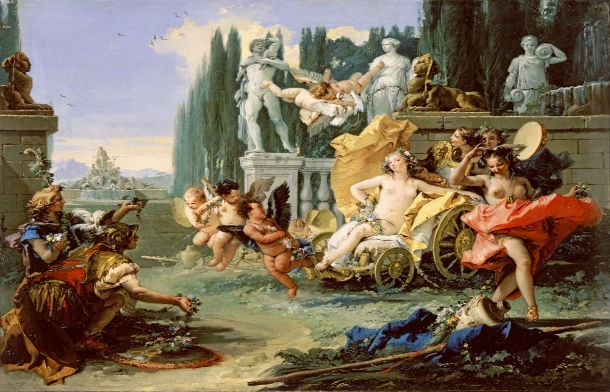 Source: greekgodsandgoddesses.net, Image: en.wikipedia.org
Source: greekgodsandgoddesses.net, Image: en.wikipedia.org Zeus’s humble servants were named Force and Violence. With servants like these you can only imagine what kind of a beast the boss was.
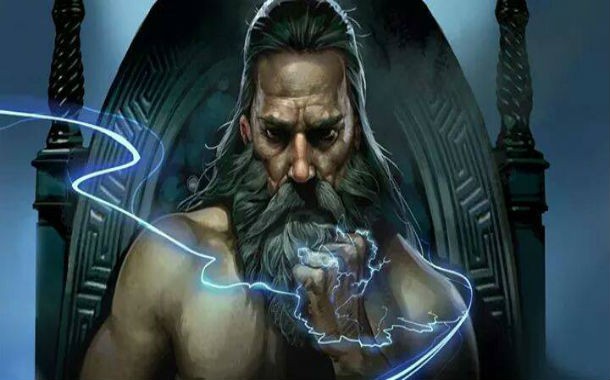 Source: greekgodsandgoddesses.net, Image: pixabay.com
Source: greekgodsandgoddesses.net, Image: pixabay.com Apollo was known for having many love affairs with both mortals and goddesses, that’s why you might often hear some men with a big ego refer to themselves as Apollo. The real Apollo, however, justified his fame and name by dating all nine Muses at once. The Muses were gorgeous goddesses known for their beauty and inspired art and music.
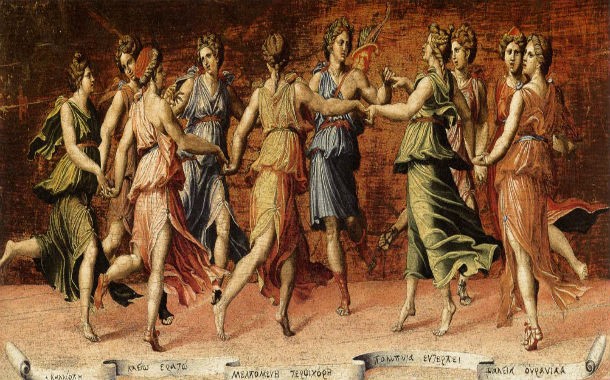 Source: greekgodsandgoddesses.net, Image: commons.wikimedia.org
Source: greekgodsandgoddesses.net, Image: commons.wikimedia.org Despite being one of the most famous and popular Greek gods today mainly because of Hollywood films and pop culture, Ares was never really popular in ancient Greece, where his worship was not substantial or widespread.
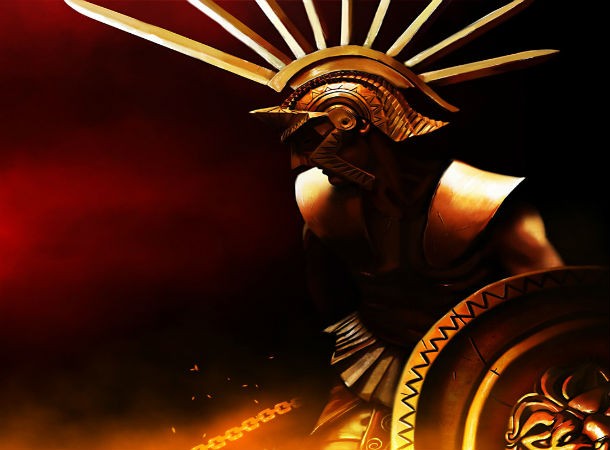 Source: greekgodsandgoddesses.net, Image: greek-mythology-pantheon.com
Source: greekgodsandgoddesses.net, Image: greek-mythology-pantheon.com As if that's not bad enough, Ares was often characterized as a coward in spite of his connection to war since he responded to even the slightest injury with outrage. Also, according to Homer, his parents, Zeus and Hera, hated him because of his constant bickering.
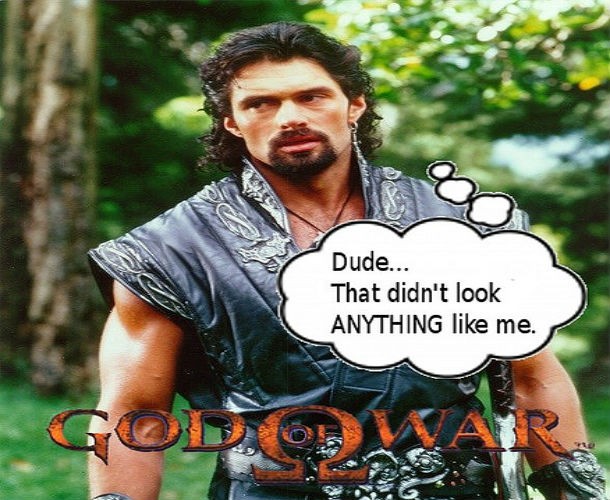 Source: greekgodsandgoddesses.net, Image: flickr.com by Cody Allison
Source: greekgodsandgoddesses.net, Image: flickr.com by Cody Allison Poseidon and Athena were rivals and competed hard for possession of Athens. To sway the people in his favor, Poseidon made a beautiful fountain of water at the Acropolis. Athena, on the other hand, gave them the olive tree, which enabled her to win the contest
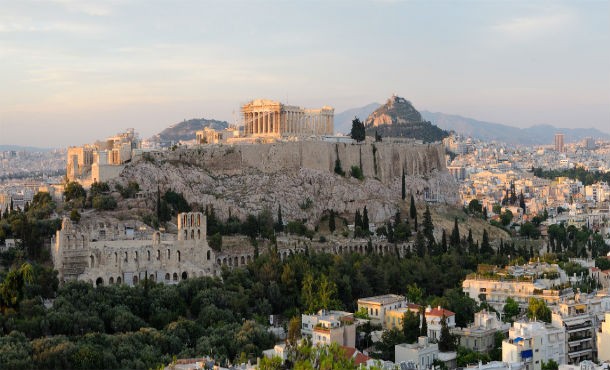 Source: greekgodsandgoddesses.net, Image: commons.wikimedia.org
Source: greekgodsandgoddesses.net, Image: commons.wikimedia.org .
Dionysus, known as the god of the vine, was the last god to enter Olympus. He was also the only Olympian who had a mortal parent, since Zeus had him with one of his many mortal girlfriends, the Theban princess Semele.
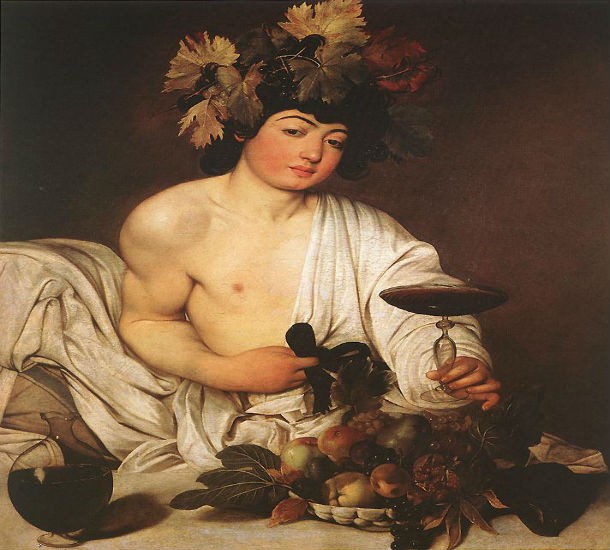 Source: greekgodsandgoddesses.net, Image: en.wikipedia.org
Source: greekgodsandgoddesses.net, Image: en.wikipedia.org Most people know Hades as the ruler of the underworld, which he was, but ancient Greeks also referred to him as the god of wealth because it was believed that he possessed the precious metals of the earth.
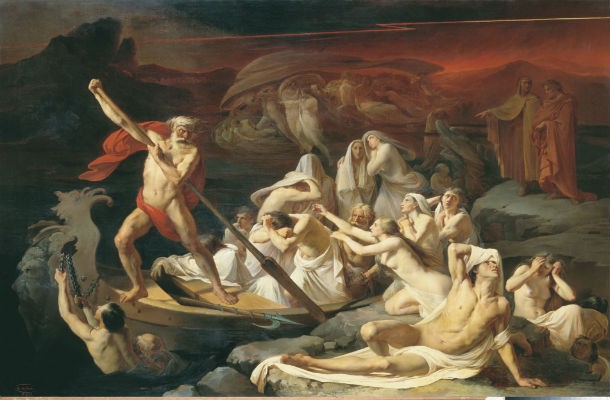 Source: greekgodsandgoddesses.net, Image: en.wikipedia.org
Source: greekgodsandgoddesses.net, Image: en.wikipedia.org Hermes is known for being the winged god who mainly served as messenger of the Olympians, but there’s a darker side to him that not many people are aware of. In his role as herald, it also fell to him to conduct souls to Hades.
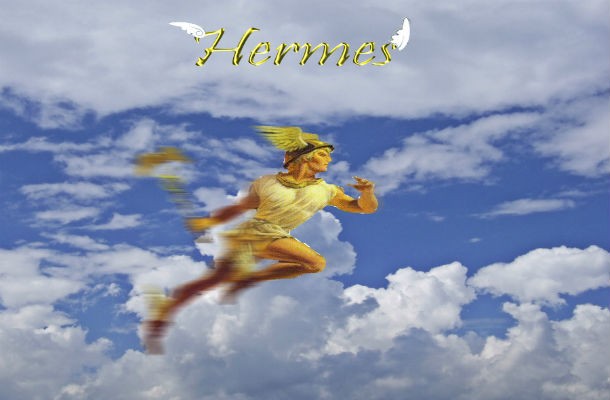 Source: greekgodsandgoddesses.net, Image: pixgood.com
Source: greekgodsandgoddesses.net, Image: pixgood.com Hestia is one of the lesser-known Olympians today but she was very important to the religion and culture of the ancient Greeks since she was goddess of the hearth, home, architecture, domesticity, family, and the state. Both Poseidon and Apollo proposed to her, but Hestia made an oath to Zeus that she would remain forever pure and undefiled, never entering into union with a man.
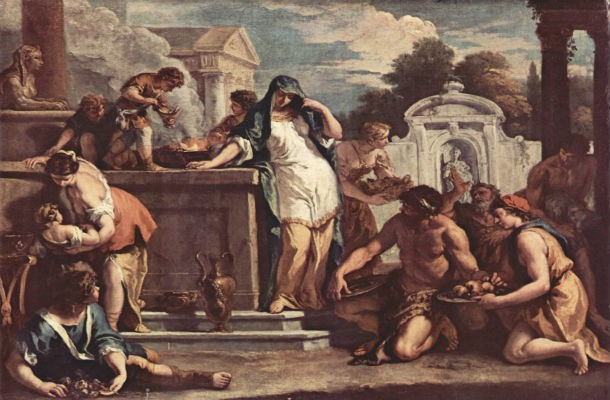 Source: greekgodsandgoddesses.net, Image: tl.wikipedia.org
Source: greekgodsandgoddesses.net, Image: tl.wikipedia.org For the record only three goddesses were believed to be virgins: Athena, Hestia, and Artemis.
 Source: greekgodsandgoddesses.net, Image: flickr.com by Jennifer 8. Lee
Source: greekgodsandgoddesses.net, Image: flickr.com by Jennifer 8. Lee Metis, the goddess of prudence, was Zeus’s first love and probably the only female the mighty Zeus was faithful to. Once he got over her, however, he became one of the biggest players the world of men and gods has ever known.
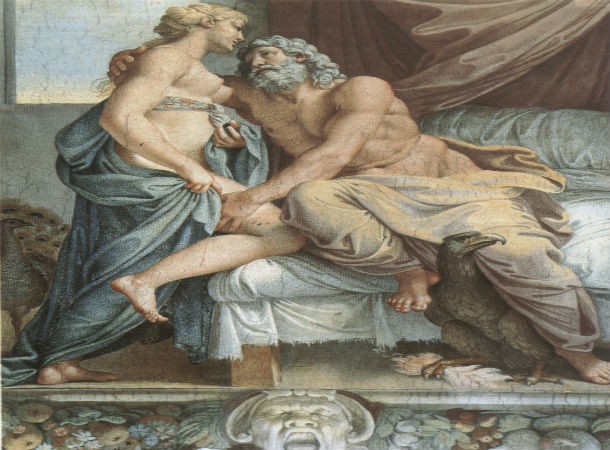 Source: greekgodsandgoddesses.net, Image: en.wikipedia.org
Source: greekgodsandgoddesses.net, Image: en.wikipedia.org Even though most Greek gods and goddesses are known for their lack of morals, especially when it comes to love affairs, Artemis was not and she guarded her virginity carefully. For example, when Orion tried to rape her, he met a violent end. Because of this she was considered an important goddess for women, especially when it came to the honor and integrity of young Greek females.
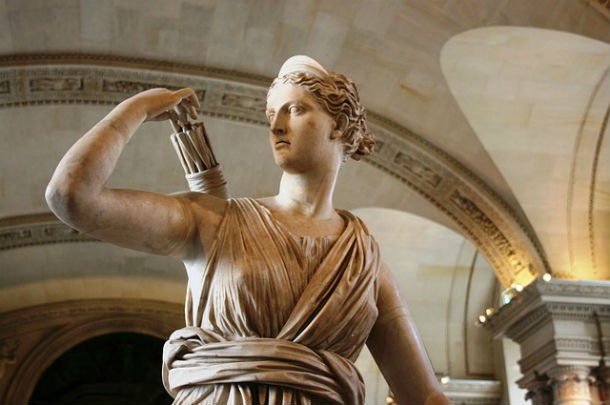 Source: greekgodsandgoddesses.net, Image: pixabay.com
Source: greekgodsandgoddesses.net, Image: pixabay.com Despite being god of the sea, Poseidon could also strike the ground with his trident producing an earthquake. This earned him the nickname Earth-shaker and made him famous among gods and men as a bad-tempered god who could get violent if things didn’t go his way.
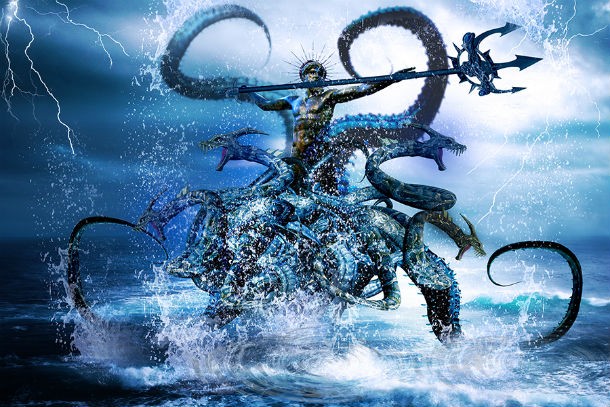 Source: greekgodsandgoddesses.net, Image: annemaria48.deviantart.com
Source: greekgodsandgoddesses.net, Image: annemaria48.deviantart.com Dog lovers are probably aware of Hades’s most loyal friend Cerberus, a three-headed dog with a serpent’s tail, a mane of snakes, and a lion’s claws, who successfully guarded the entrance to the underworld to prevent the dead from escaping and the living from entering. Cerberus failed just once in this task, when the mighty Heracles decided to enter the underworld as one of his twelve labors.
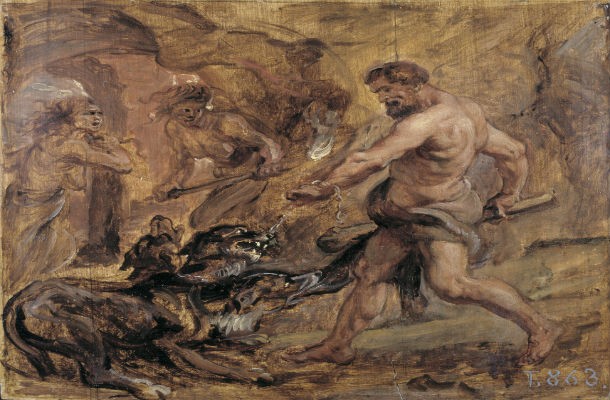 Source: greekgodsandgoddesses.net, Image: commons.wikimedia.org
Source: greekgodsandgoddesses.net, Image: commons.wikimedia.org Hera was the queen of the Olympians and the wife (and sister) of Zeus. She was known for being very jealous, mainly because of the extramarital affairs and illegitimate children Zeus had. Because of this, Hera was known for punishing offending husbands and cheaters simply because she was unable to punish the one who constantly cheated on her.
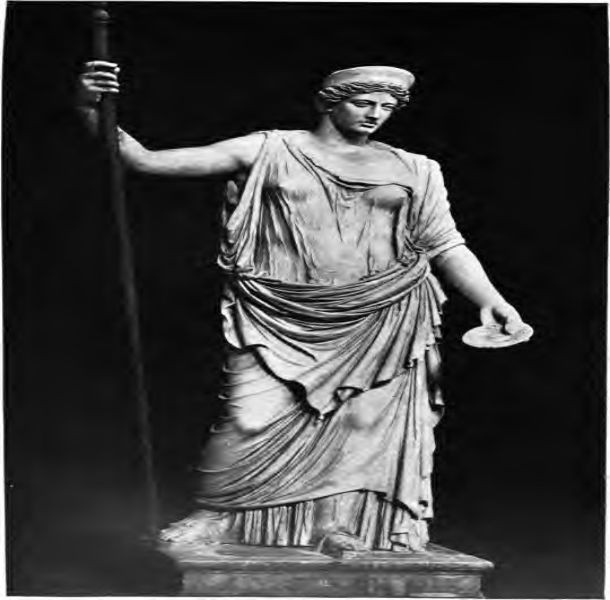 Source: greekgodsandgoddesses.net, Image: commons.wikimedia.org
Source: greekgodsandgoddesses.net, Image: commons.wikimedia.org Although Aphrodite had affairs with Hermes and Ares, her big crush according to many accounts appears to have been the demigod of beauty and desire, Adonis. She saw him when he was born and decided that he should be hers forever. She assigned Persephone to his care, but Persephone fell in love with him just as every other woman did and refused to give him to Aphrodite. Eventually, Zeus had to get involved and decided that Adonis should spend half the year with each.
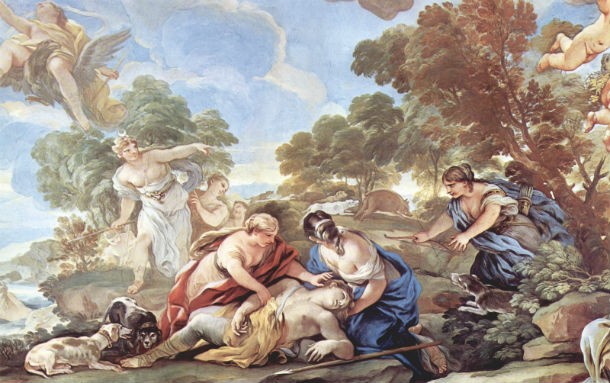 Source: greekgodsandgoddesses.net, Image: commons.wikimedia.org
Source: greekgodsandgoddesses.net, Image: commons.wikimedia.org Arguably the most famous goddess of antiquity, Athena was second only to her father Zeus. She was goddess of many things including wisdom, courage, inspiration, civilization, law and justice, strategic warfare, mathematics, strength, strategy, the arts, crafts, and skill. She was also Zeus’s favorite child. It was also believed that he gave birth to her after he had an enormous headache and she sprang full grown and armored from his forehead.
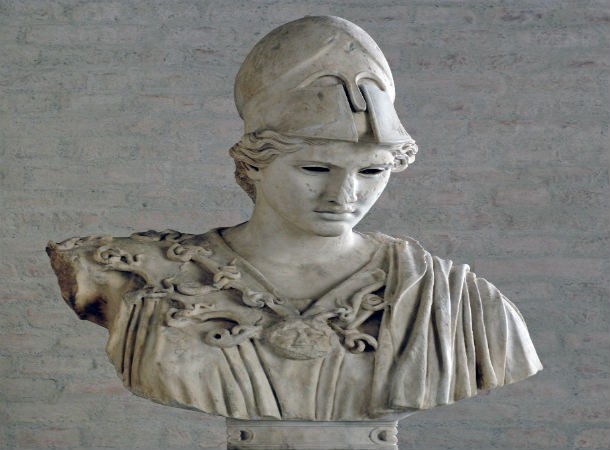 Source: greekgodsandgoddesses.net, Image: te.wikipedia.org
Source: greekgodsandgoddesses.net, Image: te.wikipedia.org According to Greek mythology Apollo taught men the art of medicine, so he is often referred to as “the Healer.” Asclepius, the god of medicine in ancient Greek religion and mythology, was probably Apollo’s most well-known son, although Apollo had many offspring with different goddesses and mortal women.
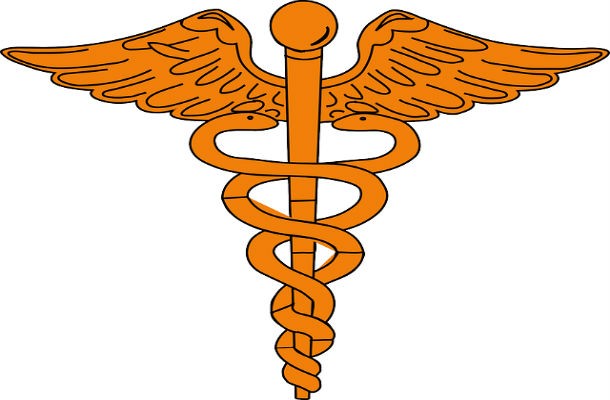 Source: greekgodsandgoddesses.net, Image: pixabay.com
Source: greekgodsandgoddesses.net, Image: pixabay.com Most people know that Heracles was Zeus’s son with Alcmene, queen of Argolis, but not many are aware of how sneaky Zeus was about the whole thing. Zeus desired Alcmene for a long time but she was faithful to her husband and ignored Zeus. As a result, Zeus disguised himself as Amphitryon, Alcmene’s husband, in order to have sex with her, and this is how the most famous mythical hero of all time was conceived.
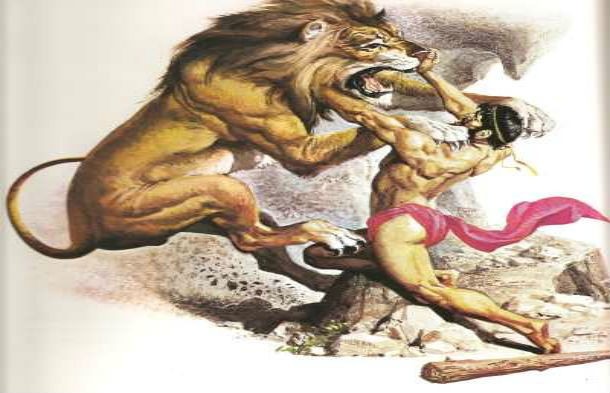 Source: greekgodsandgoddesses.net, Image: ishareimage.com
Source: greekgodsandgoddesses.net, Image: ishareimage.com Hermaphroditus was an androgynous deity and the offspring of Hermes and Aphrodite. We get the term hermaphrodite from this deity.
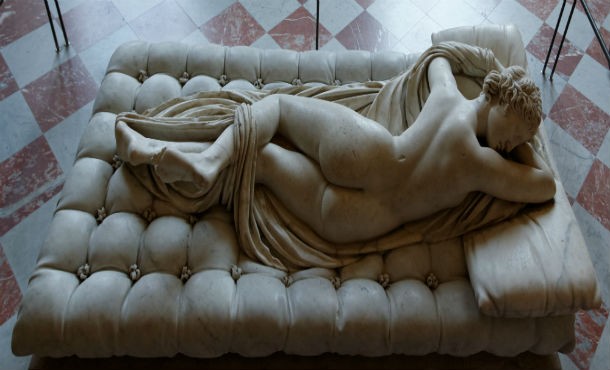 Source: greekgodsandgoddesses.net, Image: commons.wikimedia.org
Source: greekgodsandgoddesses.net, Image: commons.wikimedia.org 


























